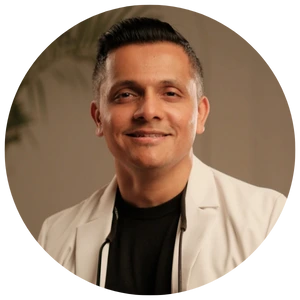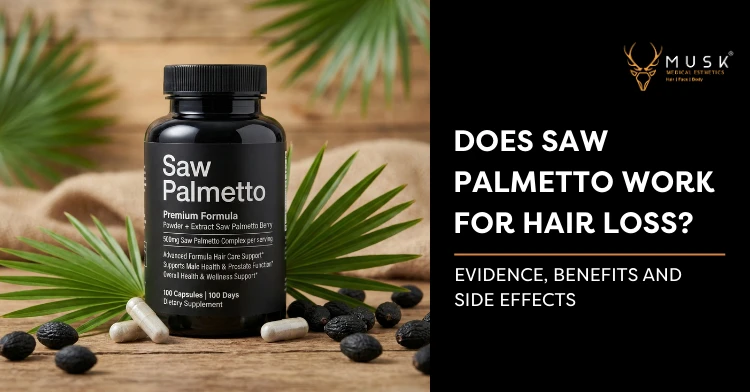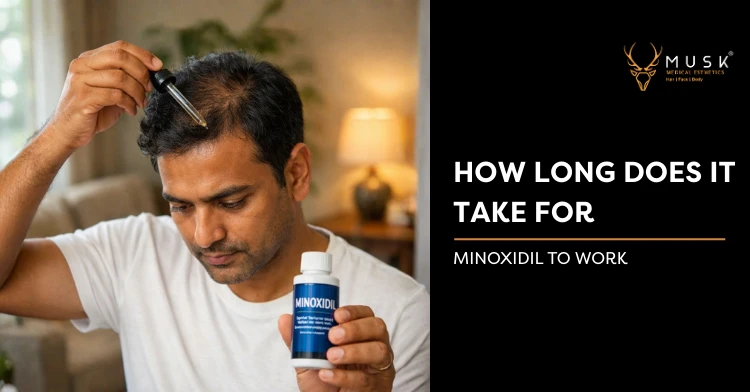Omega-3 for Hair Growth: Benefits, Uses, and Possible Side Effects

Yes, Omega-3 fatty acids can be a powerful ally for achieving healthier, stronger hair. By providing essential nutrients, these healthy fats work from the inside out to nourish hair follicles, reduce scalp inflammation, and promote robust hair growth. A balanced approach to hair wellness is key, combining proper nutrition with expert care for the best results.
At Musk Clinic, we believe in a holistic strategy for hair restoration, understanding that what you put into your body is just as important as the treatments you receive. Led by the internationally trained Dr. Anand B. Shah, our team champions a patient-first ethos that combines advanced technology with foundational wellness to help you achieve the healthy hair you deserve.
What Is Omega-3 Fatty Acids?
Omega-3s are polyunsaturated fatty acids (PUFAs) that are essential for your health. "Essential" means your body cannot produce them on its own, so you must get them from your diet. They are a crucial component of cell membranes throughout your body and play an Important role in everything from heart health to brain function—and yes, hair health.
There are three primary types of omega-3s you should know about:
- EPA (Eicosapentaenoic Acid): Found mainly in fatty fish, EPA is known for its powerful anti-inflammatory properties.
- DHA (Docosahexaenoic Acid): Also found in marine sources, DHA is a key structural component of your brain, retina, and skin.
- ALA (Alpha-Linolenic Acid): This is the most common omega-3, found in plant sources like flaxseeds and walnuts. Your body can convert a small amount of ALA into EPA and DHA, but the process is not very efficient.
How Does Omega-3 Promote Hair Growth?
Omega-3 fatty acids support the hair growth cycle in several distinct ways. They address some of the underlying issues that can lead to thinning and hair loss, making them a cornerstone of a hair-healthy diet.
1. Does Omega-3 Really Nourish Hair Follicles?
Yes, it directly nourishes the follicles. Omega-3s provide essential proteins and nutrients that strengthen the hair follicles, which are the anchors for your hair. Healthy, well-nourished follicles are the foundation for a longer anagen (growth) phase of the hair cycle.
2. Can It Reduce Scalp Inflammation?
Absolutely. Scalp inflammation can suffocate hair follicles, leading to conditions like dandruff or even hair loss. The anti-inflammatory properties of EPA and DHA help soothe the scalp, creating a healthier environment for hair to grow and thrive.
3. Will Omega-3 Improve Circulation to the Scalp?
Improved blood flow is critical for delivering oxygen and vital nutrients to your hair follicles. Omega-3s are known to enhance circulation, ensuring your scalp receives the nourishment it needs to sustain healthy hair growth and function optimally.
4. Can It Make Hair Stronger and Reduce Breakage?
Omega-3s help seal moisture and nutrients into the hair shaft, which increases its elasticity and lustre. This added strength means your hair is less prone to dryness and breakage, helping you retain length and improve overall hair density.
How Can You Get More Omega-3?
Incorporating omega-3 into your routine is straightforward, with options available through both diet and supplementation. A food-first approach is always recommended, but supplements can be a convenient way to ensure you're getting a consistent, effective dose.
What are the Best Food Sources of Omega-3?
To boost your intake naturally, focus on incorporating these omega-3-rich foods into your weekly meals:
There are three primary types of omega-3s you should know about:
- Fatty Fish: Salmon, mackerel, sardines, and herring are packed with EPA and DHA.
- Nuts and Seeds: Flaxseeds, chia seeds, and walnuts are excellent plant-based sources of ALA.
- Plant Oils: Flaxseed oil and canola oil can be easily added to salads and other dishes.
- Fortified Foods: Look for eggs, yogurt, and milk that have been fortified with omega-3s.
Should I Take Omega-3 Supplements?
Supplements can be a great way to bridge the nutritional gap, especially if you don't eat fish regularly. Fish oil, krill oil, and algae-based oils (a great vegan option) are widely available. However, not all supplements are created equal in quality or potency.
It is crucial to consult a healthcare professional before starting any new supplement regimen. An expert can recommend the right type and dosage for your specific needs, ensuring both safety and effectiveness.
How Much Omega-3 Do You Need for Hair Growth?
While there isn't an official recommended daily allowance (RDA) specifically for hair growth, most health organizations suggest a daily intake of 250–500 mg of combined EPA and DHA for healthy adults. Some studies on hair loss have used doses ranging from 1,000 to 2,000 mg.
The correct dosage depends on your overall health, diet, and specific hair concerns. At Musk Clinic, we emphasize a personalized approach, assessing your individual needs to recommend a suitable wellness plan as part of a comprehensive hair restoration strategy.
Are There Any Side Effects of Taking Omega-3?
Omega-3 is generally safe for most people when taken in moderate doses. However, like any supplement, it's important to be aware of potential side effects, which are typically mild and often related to higher doses.
What are the Common Side Effects?
Some people may experience minor digestive issues when they first start taking omega-3 supplements. These can include:
- A fishy aftertaste or "fish burps"
- Heartburn or indigestion
- Nausea
- Diarrhea
Taking your supplement with a meal can often minimize these effects. Choosing high-quality, enteric-coated capsules can also help reduce any unpleasant aftertaste.
What Other Nutrients Support Hair Health?
Omega-3 is a star player, but it works best as part of a team. For truly healthy hair, your body needs a variety of vitamins and minerals. Think of your hair care like a puzzle—all the pieces need to fit. Important nutrients for hair health include:
- Protein: Since hair is made of a protein called keratin, adequate intake is non-negotiable.
- Iron: Iron deficiency (anemia) is a major cause of hair loss, particularly in women.
- Biotin (Vitamin B7): Helps in the production of keratin.
- Zinc: Plays a vital role in hair tissue growth and repair.
- Vitamin C & E: Powerful antioxidants that protect hair follicles from oxidative stress.
When Should You See a Doctor for Hair Loss?
If you notice sudden, patchy, or excessive hair shedding that doesn't improve with dietary changes, it's time to seek professional help. Hair loss can be complex, with causes ranging from genetics and hormonal imbalances to underlying medical conditions. Self-diagnosing can delay effective treatment.
At Musk Clinic, we use advanced diagnostic tools and a deep understanding of hair biology to identify the root cause of your hair loss. Based on your unique situation, we can design a personalized treatment plan that may include nutritional guidance, medical therapies like PRP, or advanced procedures like our state-of-the-art ARTAS 9X Robotic Hair Transplant.
Your Partner in Hair Wellness
Omega-3 fatty acids are a fantastic, natural tool for promoting healthier and more resilient hair. A diet rich in these essential fats provides the internal support your hair needs to flourish. However, for comprehensive care that addresses every facet of hair loss, an expert partner makes all the difference.
From nutritional advice to the world's most advanced hair restoration technologies, Musk Clinic is dedicated to helping you achieve your goals. We are committed to restoring not just your hair, but your confidence and self-esteem as well.
FAQs

Dr. Anand B. Shah
- 10 Years of Experience
Dr Anand B. Shah, is a board-certified Maxillofacial & Craniofacial surgeon who is highly skilled in cosmetic facial and hair restoration surgery and has exclusively practised the same, internationally and nationally.











